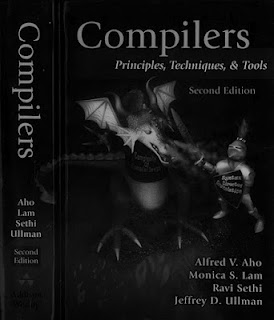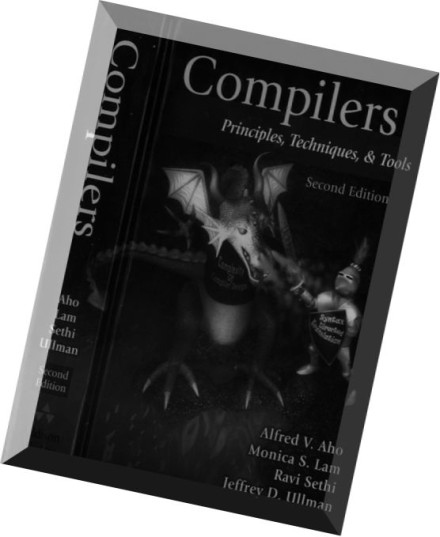Compilers Principles Techniques And Tools Pdf Ebook
Posted : adminOn 4/15/2018
This book provides the foundation for understanding the theory and pracitce of compilers. Revised and updated, it reflects the current state of compilation. KEY TOPICS: Every chapter has been completely revised to reflect developments in software engineering, programming languages, and computer architecture that have occurred since 1986, when the last edition published.
The authors, recognizing that few readers will ever go on to construct a compiler, retain their focus on the broader set of problems faced in software design and software development. MARKET: Computer scientists, developers, and aspiring students that want to learn how to build, maintain, and execute a compiler for a major programming language. Aho is Lawrence Gussman Professor of Computer Science at Columbia University. Professor Aho has won several awards including the Great Teacher Award for 2003 from the Society of Columbia Graduates and the IEEE John von Neumann Medal. He is a member of the National Academy of Engineering and a fellow of the ACM and IEEE. Lam is a Professor of Computer Science at Stanford University, was the Chief Scientist at Tensilica and the founding CEO of moka5. She led the SUIF project which produced one of the most popular research compilers, and pioneered numerous compiler techniques used in industry.
GO Aho - Compilers - Principles, Techniques, and Tools 2e.pdf. The best key search Aho - Compilers - Principles, Techniques, and Tools. Course Reference. Sethi, and J.D. Ullman, Compilers: Principles, Techniques, and Tools, Pearson Education, 2007 (second ed.). DOWNLOAD EBOOK OF. Principles, Techniques, & Tools. Second Edition. Columbia University. Stanford University. Stanford University. Boston San Francisco New York. London Toronto Sydney Tokyo Singapore Madrid. Mexico City Munich Paris Cape Town Hong.

Ravi Sethi launched the research organization in Avaya and is president of Avaya Labs. Previously, he was a senior vice president at Bell Labs in Murray Hill and chief technical officer for communications software at Lucent Technologies. He has held teaching positions at the Pennsylvania State University and the University of Arizona, and has taught at Princeton University and Rutgers.
He is a fellow of the ACM. Jeffrey Ullman is CEO of Gradiance and a Stanford W. Ascherman Professor of Computer Science at Stanford University. His research interests include database theory, database integration, data mining, and education using the information infrastructure. He is a member of the National Academy of Engineering, a fellow of the ACM, and winner of the Karlstrom Award and Knuth Prize.
This introduction to compilers is the direct descendant of the well-known book by Aho and Ullman, Principles of Compiler Design. The authors present updated coverage of compilers based on research and techniques that have been developed in the field over the past few years. The book provides a thorough introduction to compiler design and covers topics such as context-free This introduction to compilers is the direct descendant of the well-known book by Aho and Ullman, Principles of Compiler Design. The authors present updated coverage of compilers based on research and techniques that have been developed in the field over the past few years. The book provides a thorough introduction to compiler design and covers topics such as context-free grammars, fine state machines, and syntax-directed translation. There are certain books that everyone (in a relevant technical field) knows.
Baby Rudin, CLR, Patterson-Hennessy, Golub and Van Loan, and Kernighan and Ritchie are all fine examples. The Dragon Book is another fine example, despite this odd reputation it has for being too dryly theoretical. We used it when I took compilers, and I've used it as a reference for myself when working on or teaching about compilers and interpreters. When I taught compilers, we used Appel's Modern Compiler Implementati There are certain books that everyone (in a relevant technical field) knows. Baby Rudin, CLR, Patterson-Hennessy, Golub and Van Loan, and Kernighan and Ritchie are all fine examples. The Dragon Book is another fine example, despite this odd reputation it has for being too dryly theoretical. We used it when I took compilers, and I've used it as a reference for myself when working on or teaching about compilers and interpreters. Blackened Sky Biffy Clyro Raritan here.